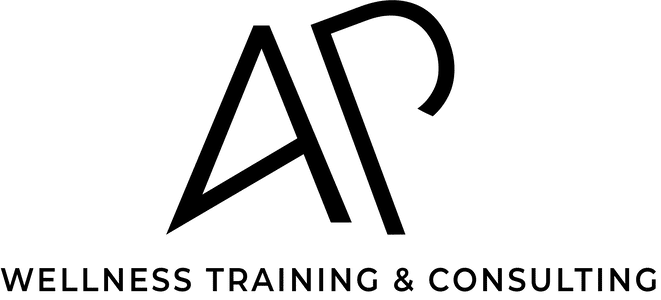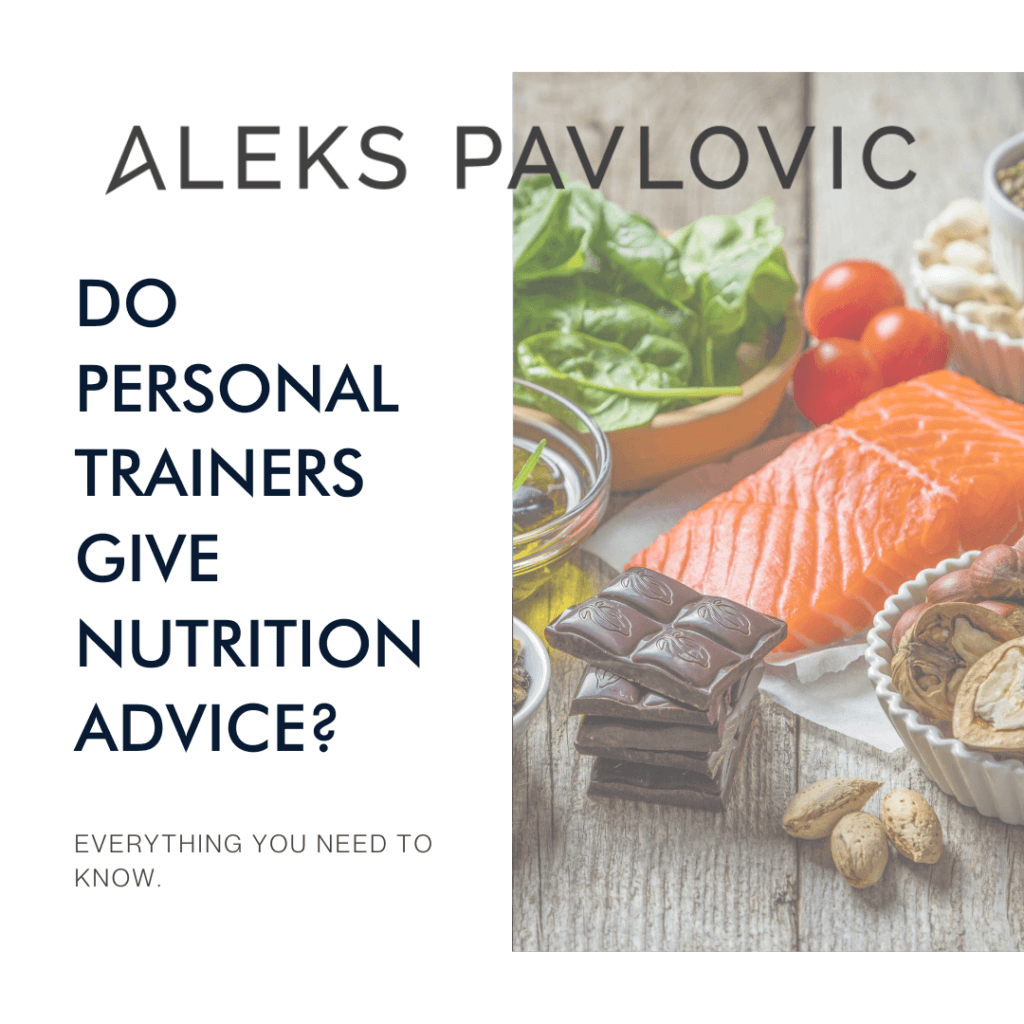Diet and exercise are both crucial to meeting your fitness goals. If you want to build muscle, for example, you need to do strength training and also increase your protein intake so your body can rebuild. Because nutrition and exercise are so intertwined, many people turn to personal trainers for advice on both, but can personal trainers give nutrition advice? Yes, but there are some restrictions. Keep reading to learn about how your personal trainer can help with nutrition and when you should turn to a licensed nutritionist.
At AP Wellness Training & Consulting in San Francisco, I offer personal training and nutrition coaching services, so you get the best of both worlds. I will create custom workout plans tailored to your fitness goals and provide nutrition education to support your work in the gym. With both online and in-person services available, I can work with you regardless of location. If you have questions about nutrition after reading this blog, please reach out.
How Nutrition Can Benefit Exercise
Nutrition is one of the most critical pieces of the fitness puzzle. Eating nutrient-dense foods and getting enough protein in your diet are essential for muscle growth and recovery. Combining diet and exercise will help you achieve results faster and ensure that your body stays healthy. Therefore, if you’re working with a personal trainer to reach your goals, nutrition should be a part of the plan.
A good personal trainer should be able to guide you in the right direction, but if you have specific health and nutrition goals, look for personal trainers who hold nutrition certifications. Dietary plans to treat health conditions should only be created by a licensed nutritionist or medical professional.
What Does a Personal Trainer Do?
A personal trainer is responsible for creating customized workout plans to help you meet your fitness goals. These fitness professionals have studied the human body, either through a reputable certification program or through a degree in exercise physiology. This allows them to create a safe and effective exercise plan for your body type and current ability level. They may also offer guidance on injury prevention and rehabilitation. Personal trainers provide motivation and support to help you stay on track.
Most personal trainers receive some education on diet and nutrition through their certification program and can offer basic guidelines for your diet, such as eating carbs for energy and protein for recovery. In addition, some personal trainers hold nutrition certifications and licenses so that they can offer more in-depth nutrition advice.
What Can a Nutrition Coach Do?
Many personal trainers will go through a certification program to also become nutrition coaches. Nutrition coaches are more knowledgeable about how diet affects the body than a general personal trainer, but still cannot provide the same dietary guidance as a licensed nutritionist. The main role of a nutrition coach is to help you set fitness and nutrition goals and implement sustainable daily practices to help you meet them.
There are state-specific laws governing what nutrition advice personal trainers and nutrition coaches can give. In most states, a nutrition coach can help you calculate the appropriate macronutrients for your body, help you understand basic nutritional principles, and offer suggestions for meal planning. They cannot, however, prescribe meal plans to treat medical conditions or offer medical diagnoses.
General Nutritional Guidelines

No matter who you are working with—a personal trainer, nutrition coach, or nutritionist—it’s important to follow some basic nutritional guidelines. A personal trainer without any additional certifications can still advise you on general nutritional principles, such as the ones found in the Dietary Guidelines for Americans.
Here are a few guidelines your personal trainer might suggest to help you get the most out of your personal training sessions:
First, eat a balanced diet that includes fresh fruits and vegetables, lean proteins, healthy fats, and whole grains.
Second, stay hydrated by drinking plenty of water throughout the day.
And third, limit the amount of processed or packaged foods in your daily diet.
Additionally, if you’re exercising regularly, make sure to get enough protein—about 1 gram per pound of body weight per day—to support muscle growth and recovery. Make sure to incorporate a variety of healthy fats as well for satiety and increased absorption of certain vitamins.
Overall, working with a personal trainer who is knowledgeable in nutrition can benefit those looking to make healthy lifestyle changes. Ensure the professional you’re working with has the necessary certifications and licenses to provide accurate advice. With the right guidance, you can reach your health and fitness goals faster and more efficiently.
*Disclaimer: The content provided should not be taken as medical advice nor should it replace the guidance of a medical professional. Please consult with your doctor before making any changes to your diet or exercise regimen.
When to Be Wary of Nutrition Advice from a Personal Trainer
Unfortunately, not all personal trainers will offer good nutritional advice or stay within their scope of practice. If your personal trainer makes any of the following recommendations, it’s best to check with your doctor first or ignore the advice altogether:
- They suggest cutting out an entire food group.
- They try to severely restrict your calorie intake.
- They prescribe a detailed meal plan. (Recipe banks and examples of meals are okay.)
- They prescribe dosages for supplements.
- Finally, they try to treat your medical condition with nutrition.
Some of these recommendations are actually illegal for anyone but a registered dietician to offer. So if you ever feel uncomfortable with dietary advice from your personal trainer, trust your instincts and check with a medical professional first.
Get Science-Based Nutrition Coaching from AP Wellness Training & Consulting
I founded AP Wellness Training & Consulting to create a supportive environment for individuals to meet their fitness goals. I take a science-based approach to personal training and nutrition coaching, using my background in medical research, and pledge to always provide safe and ethical nutrition advice to my clients. Instead, I will educate you about nutritional principles and equip you to make healthy choices. Schedule a consultation today if you’re ready to see lasting results.






